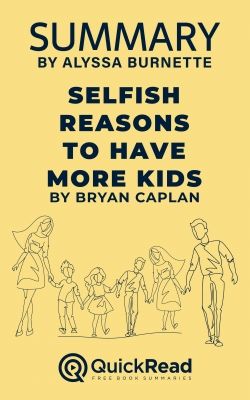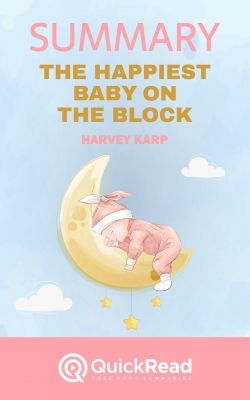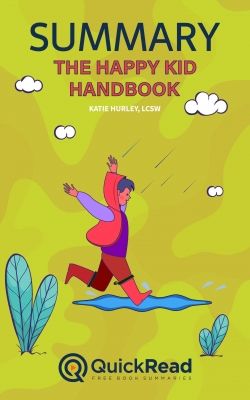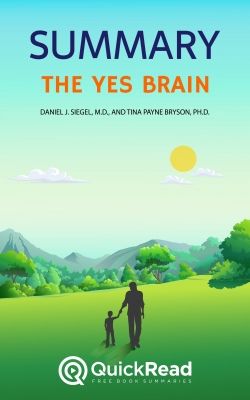QuickRead - Book Summaries
QuickRead AS
FREE - In Google Play
Parenting
Parenting can be a tricky topic, but we’ve got you covered with all the best tips for raising happy, well-adjusted kids.
Sort By:
alphabetically
most recent
most popular

Robert Karen
Becoming Attached (1998) explores the importance of children’s first relationships in life by examining their attachment to a primary caregiver.
Offering insights into the positive and negative ways that early attachment can impact childhood development, Robert Karen presents his theories on childhood bonds and cements his place in the wider scientific conversation on attachment theory.
11 minutes

Ali Wong
Ali Wong, an Asian American female comedian, sets out to write a series of letters to her daughters in her book, Dear Girls. Despite experiencing much success these past few years, Wong’s life has been far from perfect. Throughout her journey, she has experienced failure, embarrassment, harassment, and criticism and reveals the lessons she’s learned from those experiences. From recounting hilarious moments like how she mooned her husband on stage after they first met, to revealing more serious experiences like how difficult pregnancy and parenthood can be, Wong seeks to tell her stories and teach her daughters life lessons they can use...but only after they’ve turned 21! Throughout her book, you’ll learn Ali Wong’s mantra for motherhood, what it’s like to be an American Asian female comedian, and even learn how to spot the best Asian restaurants.
14 minutes

Esther Wojcicki
Vital lessons on raising children to be independent, resilient, and kind.
Renowned journalist, entrepreneur, educator, and mother of two Esther Wojcicki draws on her decades of professional and personal experience in her attempt to create a roadmap for raising children to be successful, independent, and compassionate.
Winner of numerous pedagogical awards such as the 2002 California Teacher of the Year by the California Commission on Teacher Credentialing, and the 2011 Charles O’Malley Award from Columbia Scholastic Press, Wojcicki, known affectionately as Woj by her friends, is also the mother of 3 exceptional and accomplished daughters. Her children; Anne (co-founder and CEO of 23andMe), Janet, a Fulbright-winning anthropologist, and Susan, YouTube’s CEO, are a testament to her wisdom as a parent.
8 minutes

Bryan Caplan
Learn why it’s okay to have a big family.
Selfish Reasons to Have More Kids (2011) is the parenting book you weren’t expecting. Part genetic research and part parenting guide, this book is the brainchild of father and economist Bryan Caplan. Caplan believes that the stress of modern parenting can be summarized in a nutshell: modern parents stress themselves out because they feel pressured to be perfect parents. Selfish Reasons to Have More Kids explains how and why you can release yourself from that pressure.
16 minutes

Catherine Steiner-Adair
How to raise children in the digital age.
The Big Disconnect (2013) explores the impact of technology and social media on childhood development. Catherine Steiner-Adair’s research provides practical strategies for parents who are interested in understanding these challenges and protecting their children.
15 minutes

Harvey Karp
The New Way to Calm Crying and Help Your Newborn Sleep Longer
If you’re a new parent, you’ve likely experienced feeling helpless and frazzled as nothing you do seems to soothe your baby. Your poor baby cries and cries and you become frustrated and exhausted. Well, no longer do you need to feel this way. Dr. Harvey Karp reveals that there IS a remedy for colic. Throughout The Happiest Baby on the Block, Dr. Karp blends modern science and ancient wisdom to prove that newborns aren’t fully ready for the world in which they are born. Instead, Dr. Karp believes that the main reason babies cry is that they are born three months too soon, which he calls the missing Fourth Trimester. Understanding the basic principles of the fourth trimester is crucial for understanding babies as well as improving their sleep and soothing their senses. As you read, you’ll learn why babies love loud noises and vigorous movements, and how to trigger your baby's calming reflex to become a master at soothing fussy babies.
12 minutes

Katie Hurley
How to Raise Joyful Children in a Stressful World.
Parenting today has become more complicated than it ever has before. As our world becomes more and more connected, we become overwhelmed with the amount of parenting advice that seems to be taking over at every corner. Parenting in the past seems to have been much simpler, all you had to worry about was getting dinner on the table and making sure everyone survived without anything catching on fire. Today, however, everybody has an opinion on how to parent and there are countless techniques, like attachment parenting, free-range parenting, mindful parenting. How do you know which one is best? How can you choose? In the end, all that matters is one thing: that your kids are happy. This is where psychotherapist and parenting expert Katie Hurley comes in. Throughout The Happy Kid Handbook, Hurley shows parents how happiness is the key to raising confident, capable children. This doesn’t mean giving in to every child’s desire; instead, it means parenting to your individual child. After all, every child is different. When you listen to your children and encourage them to explore and express their emotions, you’ll teach them how to live happy, fulfilled lives while navigating the stresses of life. As you read, you’ll learn how to parent to your child’s unique needs, why allowing them to be scared is healthy, and why giving your child the freedom to play can help with more than just social skills.
20 minutes

Daniel J. Siegel, Tina Payne Bryson
Learn How to Cultivate Courage, Curiosity, and Resilience in your Child
Parenting is hard work. As parents try to mold and shape their children into becoming good people, they are faced with many contentious issues and may question, “how much screen time should I allow?” “Should I let them eat that?” or “What’s an appropriate bedtime?” Suddenly, parents turn into the bad guys and children often act out or shut down when asked to do something simple like turn off the TV. That’s because children typically respond with reactivity instead of receptivity; they have what Daniel J. Siegel and Tina Payne Bryson call a No Brain response. The good news is that brains have this little thing called neuroplasticity, which means it can change and adapt! Kids can be taught to approach life differently and with openness and curiosity. With a Yes Brain mindset, children are more willing to take chances and explore, they are more curious and imaginative. They become better at relationships and overcoming difficult situations. As you read, you’ll learn the four characteristics of a Yes Brain, why children are naturally selfish, and how to teach them to control their reactions and emotions.
12 minutes
- ← Prev
- 0
- Next →